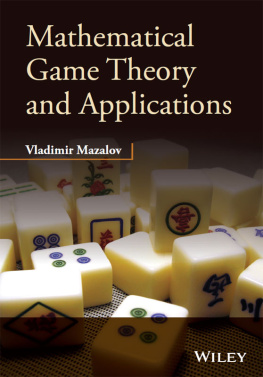
Press Operating Committee
Chair
James W. Cortada
IBM Institute for Business Value
Board Members
Mark J. Christensen, Independent Consultant
Richard E. (Dick) Fairley, Founder and Principal Associate, Software Engineering Management Associates (SEMA)
Cecilia Metra, Associate Professor of Electronics, University of Bologna
Linda Shafer, former Director, Software Quality Institute, The University of Texas at Austin
Evan Butterfield, Director of Products and Services
Kate Guillemette, Product Development Editor, CS Press
IEEE Computer Society Publications
The world-renowned IEEE Computer Society publishes, promotes, and distributes a wide variety of authoritative computer science and engineering texts. These books are available from most retail outlets. Visit the CS Store at http://computer.org/store for a list of products.
IEEE Computer Society/Wiley Partnership
The IEEE Computer Society and Wiley partnership allows the CS Press authored book program to produce a number of exciting new titles in areas of computer science, computing and networking with a special focus on software engineering. IEEE Computer Society members continue to receive a 15% discount on these titles when purchased through Wiley or at wiley.com/ieeecs.
To submit questions about the program or send proposals please e-mail or write to Books, IEEE Computer Society, 10662 Los Vaqueros Circle, Los Alamitos, CA 90720-1314. Telephone +1-714-816-2169.
Additional information regarding the Computer Society authored book program can also be accessed from our web site at http://computer.org/cspress .
Copyright 2012 by IEEE. All rights reserved.
Published by John Wiley & Sons, Inc., Hoboken, New Jersey.
Published simultaneously in Canada.
No part of this publication may be reproduced, stored in a retrieval system, or transmitted in any form or by any means, electronic, mechanical, photocopying, recording, scanning, or otherwise, except as permitted under Section 107 or 108 of the 1976 United States Copyright Act, without either the prior written permission of the Publisher, or authorization through payment of the appropriate per-copy fee to the Copyright Clearance Center, Inc., 222 Rosewood Drive, Danvers, MA 01923, 978-750-8400, fax 978-646-8600, or on the web at www.copyright.com. Requests to the Publisher for permission should be addressed to the Permissions Department, John Wiley & Sons, Inc., 111 River Street, Hoboken, NJ 07030, (201) 748-6011, fax (201) 748-6008.
Limit of Liability/Disclaimer of Warranty: While the publisher and author have used their best efforts in preparing this book, they make no representations or warranties with respect to the accuracy or completeness of the contents of this book and specifically disclaim any implied warranties of merchantability or fitness for a particular purpose. No warranty may be created or extended by sales representatives or written sales materials. The advice and strategies contained herein may not be suitable for your situation. You should consult with a professional where appropriate. Neither the publisher nor author shall be liable for any loss of profit or any other commercial damages, including but not limited to special, incidental, consequential, or other damages.
For general information on our other products and services please contact our Customer Care Department within the U.S. at 877-762-2974, outside the U.S. at 317-572-3993 or fax 317-572-4002.
Wiley also publishes its books in a variety of electronic formats. Some content that appears in print, however, may not be available in electronic format.
Library of Congress Cataloging-in-Publication Data
Game invaders : the theory and understanding of computer games / Clive Fencott ... [et al.].
p. cm.
Includes bibliographical references and index.
ISBN 978-0-470-59718-7 (pbk.)
1. Computer games. 2. Computer gamesDesign. 3. Video games 4. Video gamesDesign. I. Fencott, P. C.
GV1469.3.G365 2012
794.8dc23
2012002566
Preface
Game Invaders and Game Invaders Live (GIL) have interesting histories, and it is worth a few words to outline them, as they do to some extent explain why both are as they are.
Degrees in gamesvideo games, as they used to be calledhave been around for about 15 years at the University of Teesside and a few others. When they began there was very little theoretical and/or analytical material with which to establish game courses at an appropriate academic level. In the mid-1990s Clive went in search of suitable theory, found some, found he had to invent some, and began to put this together in his teaching: a final year undergraduate course called Game Futures. The idea was that students thought about the future of games rather than Clive telling them what that future would be. This was just as well, as Clive didnt know the future of games and would have wanted a lot more money to tell anyone who wanted to know if he did. The history of what would become this book and GIL had begun.
Games people wrote about how to develop games, how to design them, and what the industry expected, and gradually the academic community got its act together and suitable theory and analytics began to appear.
In 2003 Clive started writing a book based on what is now much of the book you now have in your hands. And a publisher got interested and all was going well until the publisher, or rather the editor Clive was talking to, stopped talking. The idea of a book was put on hold because at about that time, Teesside University put out a call for staff who were interested in developing their entrepreneurial sides. Clive was fed up being messed around by the publishing world and decided that there might be a business opportunity in selling analysis data on games to game developers and the like. The university and a regional Proof of Concept fund agreed with him, and in 2004 a company called Strange Agency was set up. Jo Clay was its first, and for a while only, employee while Clive continued with the day job and the company, which was also a day job. Mike and Paul got involved as software and database experts respectively and along with Clive, Jo, the university, and the Proof of Concept Fund became shareholders and board members.
The idea was that the analysis data should be automatically generated and made available through a software system that accessed data from the companys web server. The desktop software worked well and data on thousands of games were collected and made available. People in the games industry were quite interested and the team demonstrated at trade shows such as E3 and tried to drum up business. But sales were hard, very hard, to come by and eventually after many trials and tribulations Strange Agency was wound up in 2009.
Rather than let it all go to the wall, Clive, Mike, Jo, and Paul decided to return to the original idea of publishing a book. Mike completely rewrote the software so it ran wholly on the web as a Silverlight application, and the book was rewritten to incorporate all that they had learned about games analysis. GIL meant that students and teachers could undertake their own analyses to support the theory and examples in the book. The current book, web app, and website, a truly multi-media publication, came into being.
Next page
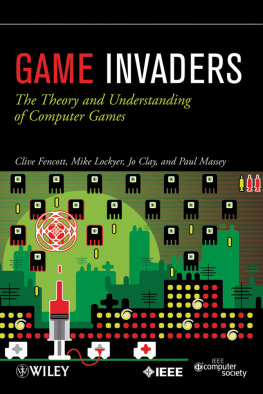

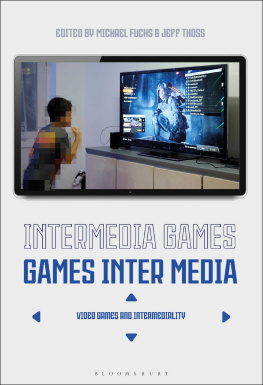

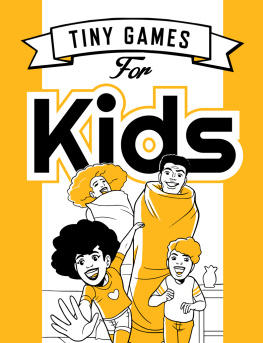
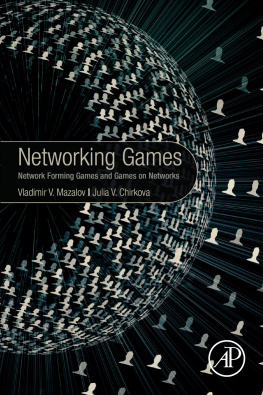
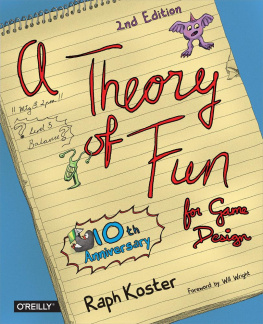
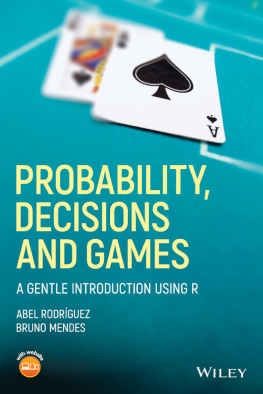
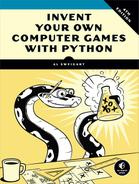
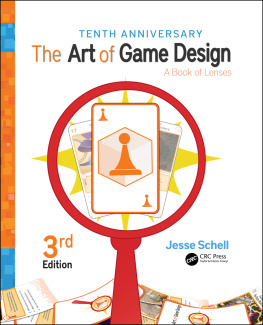
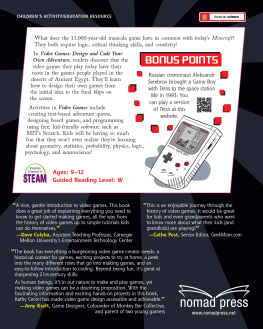
![Ethan Ham [Ethan Ham] - Tabletop Game Design for Video Game Designers](/uploads/posts/book/119417/thumbs/ethan-ham-ethan-ham-tabletop-game-design-for.jpg)
